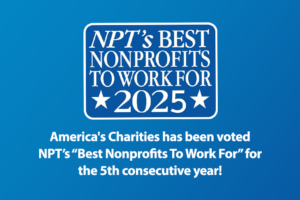Sarah Ford | March 31, 2015
How Giving Homes To The Homeless Reduces Homelessness
In the 1990s, at a time when temporary shelters were often the only options available to homeless people, Pathways to Housing, a New York-based nonprofit pioneered an innovative solution to chronic homelessness: giving the homeless homes – an approach now referred to as “housing first”. Since then, the “housing first” approach has been adopted by the federal government and numerous nonprofits serving the homeless population. Housing first is not only effective in getting homeless people off the streets. It is also designed to save the government money.
According to a February analysis commissioned by Miriam’s Kitchen, D.C’s 400 most vulnerable chronically homeless people soak up an average of $40,000 per person annually in ambulance rides, hospitalizations and run-ins with the law. By contrast, rent and social services for someone in a permanent supportive housing program run about $20,000 annually.

Get Resources and Insights Straight To Your Inbox
Explore More Articles
For Fifth Consecutive Year America’s Charities Named ‘Best Nonprofit To Work For’
Washington, D.C. – April 1, 2025 – America’s Charities, the nonprofit that mobilizes the power of giving as a leading provider of volunteering, workplace giving,…
Read ArticleWorkplace Fundraising + Volunteering Summit (April 2nd and 3rd, 2025)
Join us in attending this virtual summit! The America’s Charities team is joining up with other leading voices in the workplace giving space for a…
Read ArticleThe Time to Act is Now
The results of the 2024 National Assessment of Educational Progress (NAEP) are in, and the findings are, in a word, heartbreaking. This assessment serves as…
Read ArticleGet Resources and Insights Straight To Your Inbox
Receive our monthly/bi-monthly newsletter filled with information about causes, nonprofit impact, and topics important for corporate social responsibility and employee engagement professionals, including disaster response, workplace giving, matching gifts, employee assistance funds, volunteering, scholarship award program management, grantmaking, and other philanthropic initiatives.




